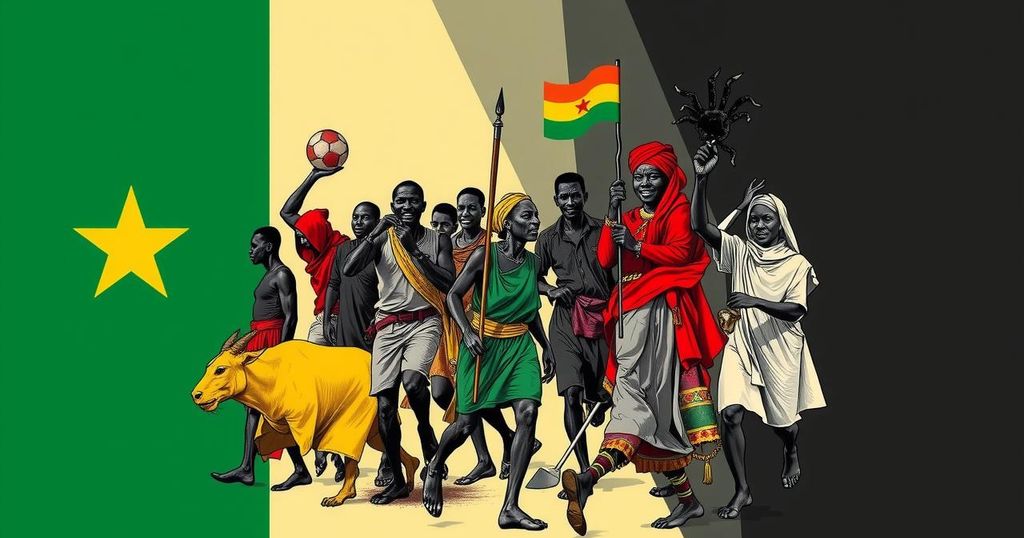Michael Donyina Mensah of CenPOA warns that voting based on tribal and religious sentiments threatens Ghana’s democracy and development. He insists that such practices hinder progress and provide opportunities for incompetence in leadership. Encouraging voters to focus on candidates’ qualifications, he underscores the necessity for a collective shift to policies and accountability as the foundation for future electoral choices.
Michael Donyina Mensah, the Executive Director of the Centre for Public Opinion and Awareness (CenPOA), has expressed grave concerns regarding the influence of tribal and religious affiliations in the electoral process of Ghana. He warns that supporting candidates based on such sentiments fundamentally undermines the nation’s democratic principles and stifles its development. Emphasizing the negative consequences of tribal and religious voting, Mr. Mensah highlighted that this practice not only hampers progress but also results in the election of leaders lacking the necessary competence, accountability, and integrity needed to effect meaningful change.
Research, as cited by Mr. Mensah, suggests that when voters prioritize tribal or religious identity over qualifications and ethical standards, they risk compromising their expectations of leadership. This subjective approach to voting limits opportunities for electing capable leaders and can delay crucial national transformations. Therefore, Mr. Mensah advocates for a shift in focus among Ghanaian voters, encouraging them to prioritize policies, the candidates’ qualifications, and their adherence to constitutional principles over emotional allegiance to tribal or religious identities.
During a discussion on Frontline on Rainbow Radio 87.5FM, he underscored the civic responsibility of Ghanaians to reject candidates who are perceived as incompetent, regardless of their affiliations. He noted that the constitutional architects intended to prevent the formation of political parties based solely on tribal or religious lines. He lamented the current situation where some political parties display favoritism towards certain ethnic groups, urging an immediate end to such practices to ensure the nation’s progress is not impeded. Mr. Mensah concluded that Ghanaians should strive to elect candidates based on their managerial capabilities rather than tribal connections to foster a thriving democracy and sustainable development.
The issue of voting along tribal and religious lines poses significant risks to Ghana’s democratic integrity and development trajectory. This concern emerges from a much broader discussion regarding the impact of identity politics on governance and national unity. As political affiliations shape electoral dynamics in Ghana, it becomes crucial for citizens to critically assess their voting habits in light of the potential ramifications on leadership quality and national progress. Thus, prioritizing competence and accountability in leadership over emotional ties to tribal or religious identities becomes imperative for fostering a vibrant democracy.
In conclusion, the warning articulated by Michael Donyina Mensah emphasizes the urgent need for Ghanaian voters to reassess their voting criteria. By prioritizing candidates’ skills, integrity, and accountability over tribal and religious affiliations, citizens can significantly enhance the quality of leadership and facilitate national development. The endorsement of such a mindset is essential to overcoming the setbacks posed by sectarian voting practices and aligns with the vision of a more unified and progressive Ghana.
Original Source: www.ghanaweb.com






